
How 10 Asian shopkeepers took on the Sicilian mafia in Palermo and rebuilt their neighbourhood
- After mafioso Emanuele Rubino shot a Gambian immigrant in the head, the Bengali shopkeepers refused to pay extortion money
- Despite numerous threats, they refused to bow down, seeking legal recourse through the courts
On a hot afternoon in Palermo’s Ballaro market, Bengali shopkeeper Anwar Hussein Ahmed places a handful of okra into a plastic bag for an African woman in an elegant yellow head wrap.
The streets near his store, in the heart of the market, are a swirl of human activity. The air is heady with the aroma of Sicilian culinary staples such as arancini (risotto balls) and fried sardines. Ahmed, however, peddles ingredients unheard of in a traditional Italian kitchen.
Mafia ‘boss of bosses’ suspect picked up in Sicily by Italy’s police
“I sell cassava, fufu [a starchy West African staple], okra, ghee and spices,” he says, adding that most of his customers are Bengalis from Bangladesh, and from Ghana and Nigeria.
For years Ballaro was a poor, neglected neighbourhood, and a hotbed of the Sicilian mafia. Not everything has changed. Around the corner from Ahmed’s store, young men deal drugs openly on the street. Others deliver suspicious packages on mopeds that they ride furiously through the historic backstreets.
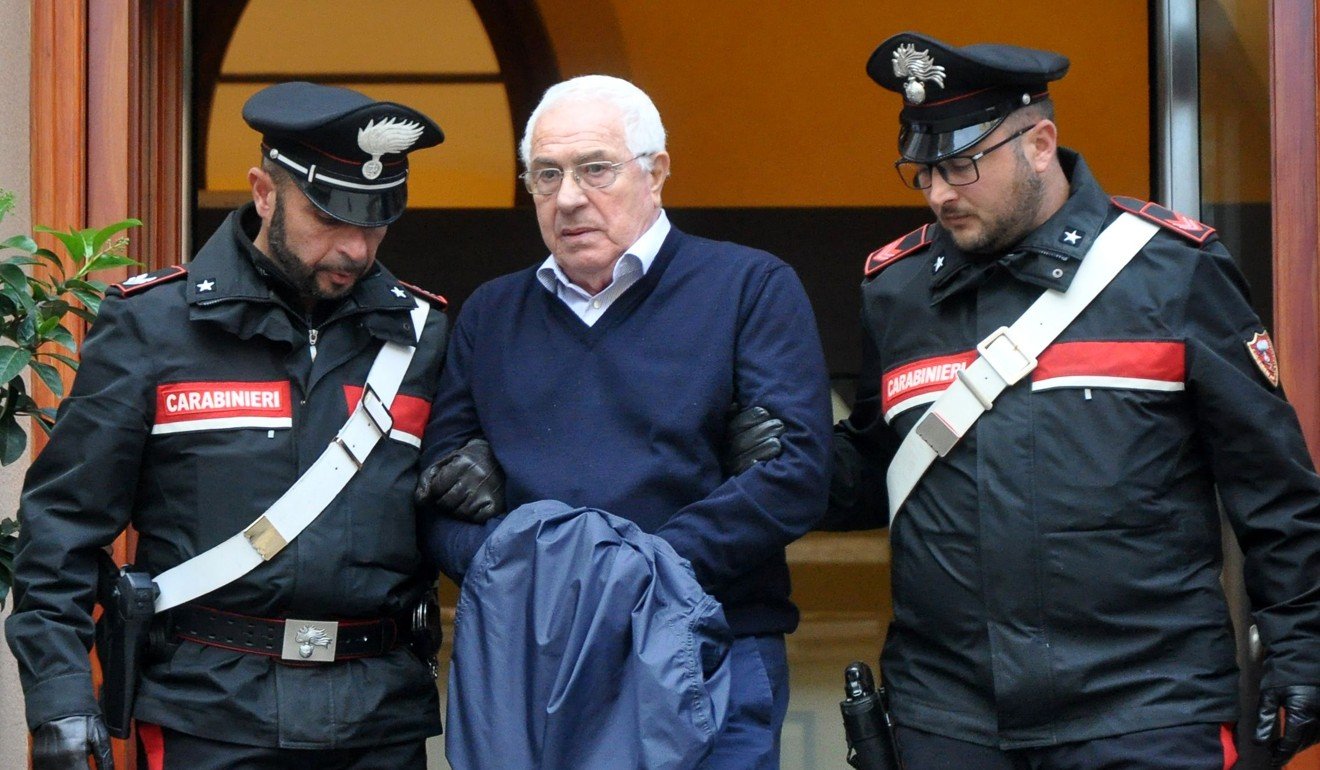
Then, in early December, “Godfather” Settimino Mineo was arrested along more than 40 other suspected gangsters on charges ranging from extortion to arson and possession of weapons. The arrests dealt a huge blow to the mob, but Sicilian authorities have not always moved quickly to deal with the scourge.
In the southern Italian island today, the most spirited opposition to the mob is perhaps not the authorities or police, but humble migrants in the old Ballaro market.
More than two years ago, 10 Bengali shopkeepers and a Tunisian peer took on a system of street crime and extortion targeting them in increasingly multicultural Palermo, Sicily’s capital. Migrants who had for years remained silent out of fear, angry at demands to pay pizzo (protection) money, told the mafia bosses: “We’ll see you in court.”
The court case was not taken up until October 2017 and is still pending. It is a closed case and the shopkeepers’ identities have been protected.
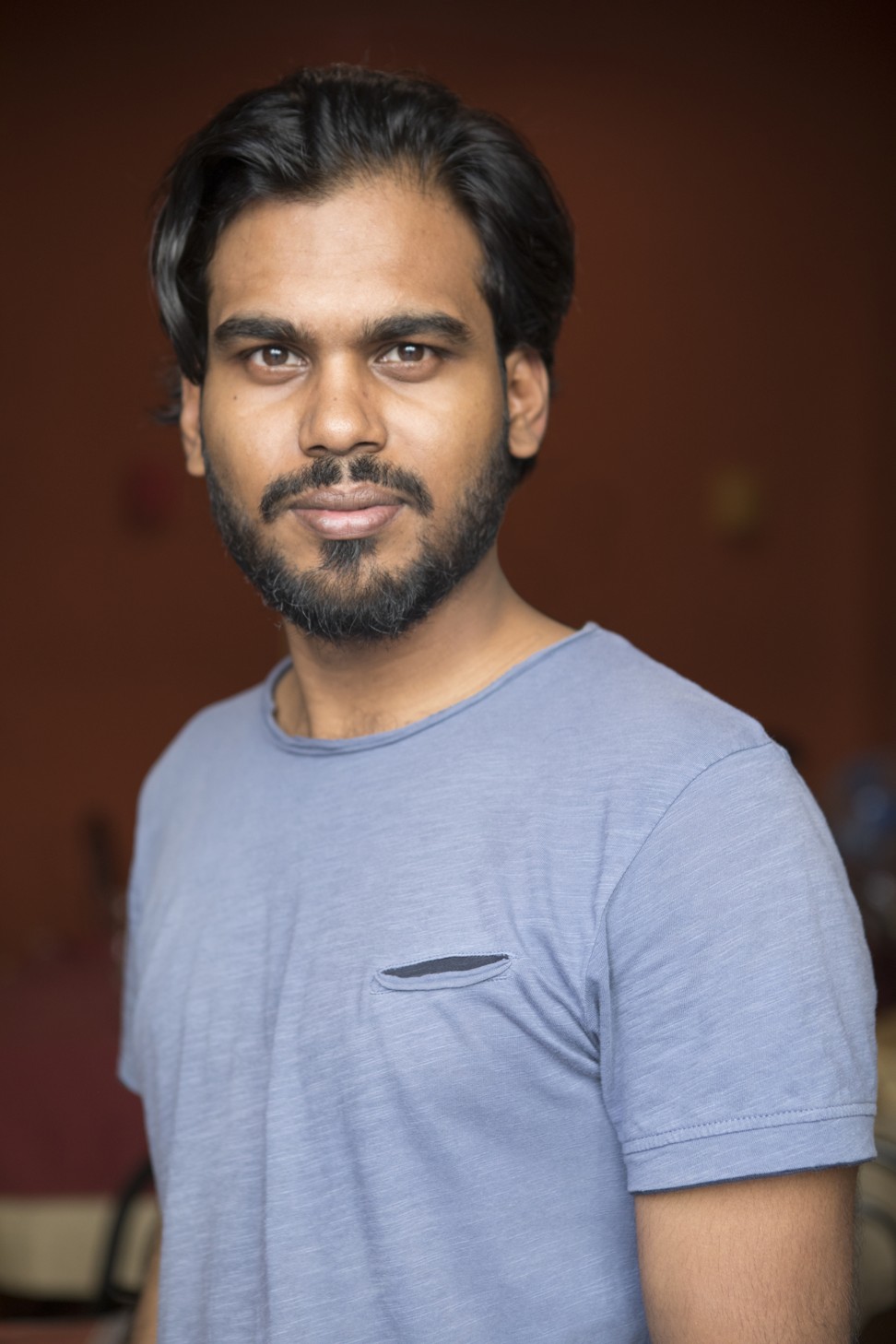
Tafazzul Topu, who works with Bengalis in the market, recalls the incident that inspired the shopkeepers to stand up to the mobsters and seek legal recourse through Sicily’s courts. It was the shooting in 2016 of 21-year-old Gambian migrant Yusupha Susso, a short stroll from Ahmed’s store.
On a balmy April evening, local mafioso Emanuele Rubino shot Susso in the head after an altercation earlier in the day. The bullet grazed Susso’s brain, leaving him in a coma. Rubino was arrested.
The attempted murder galvanised Ballaro’s shopkeepers, who had long remained silent so as not to fall prey to the mob’s wrath.
Fear gave way to defiance, with an act of rebellion among the long-suffering Bengalis, who emerged as leaders of the anti-mafia movement in the market. Migrants from Tunisia, Nigeria, Gambia and Bangladesh stood shoulder to shoulder with Sicilian activists to demand the island’s authorities do more to tackle the scourge.
US gangster James ‘Whitey’ Bulger, 89, ‘beaten to death’ in prison
They filed a legal case against known mobsters operating in Ballaro, including individuals with close ties to Rubino. In November last year, the Court of Appeal in Palermo upheld Rubino’s 12-year jail sentence for shooting Susso. His brother, Giuseppe, who had also been on trial, was acquitted.
Migrant communities began to settle and set up shop in the Ballaro market in the 1990s, setting in motion changes that have gradually transformed the fortunes of the once forgotten corner of Palermo. With Bengalis such as Ahmed helping to rebuild the neighbourhood, it has even found its place on the tourist map.
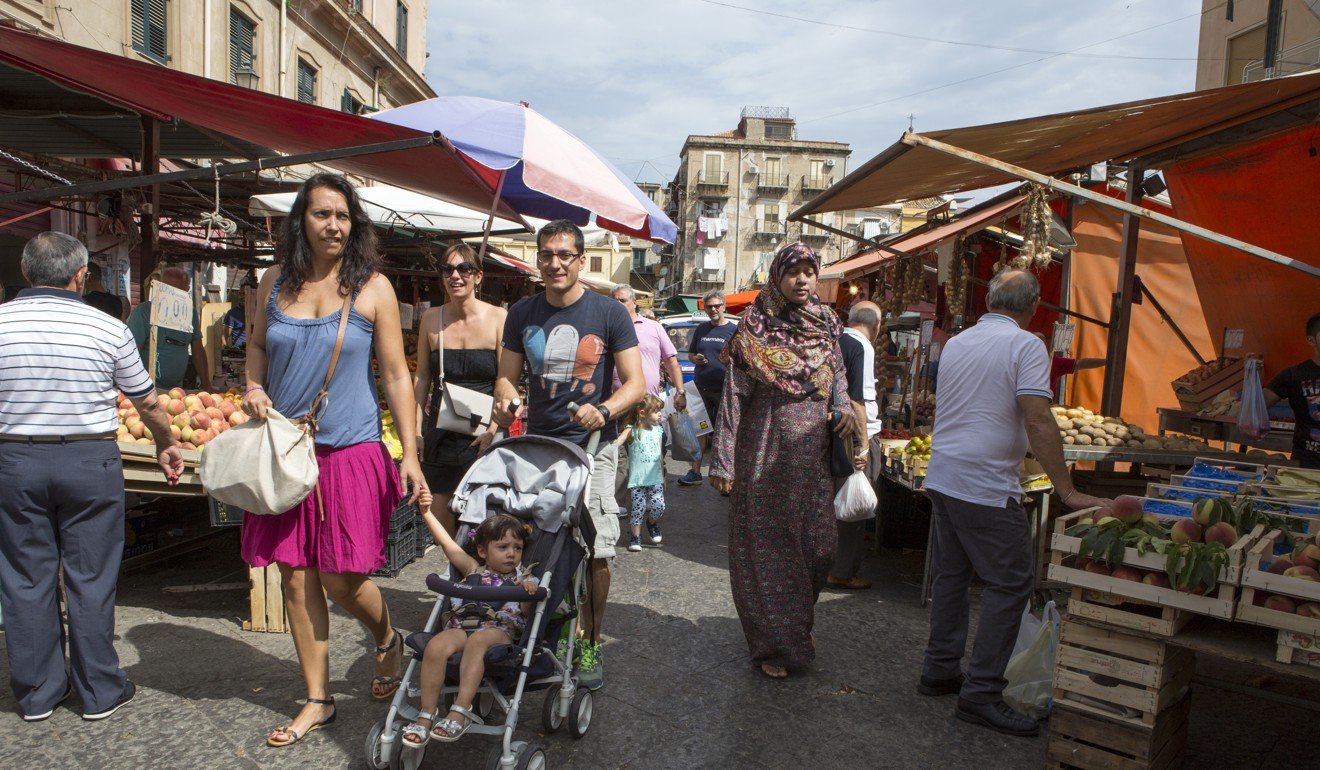
“I have lived here for 20 years”, says Ahmed, who has two sons and a Sicily-born daughter. The family live in a modest flat a kilometre away from his store.
He established his business in 2013 as a mini-market catering to the area’s multicultural community, investing savings he made working in the seasonal tourist industry in southern Sicily.
The shopkeeper lowers his voice and his mood shifts as he looks around to see who’s out there in the market. He has not been immune to mafia threats, he says.
“Somebody came up to the front of my store. I told them, if see you here again I will take necessary action.” He says the men threatened him, but he managed to fend them off.
“If you live in Ballaro you have to keep the [mafia] bosses in the area happy, otherwise they come and rob your shop,” Topu says. He adds that many shopkeepers pay protection money to avoid becoming targets.
“For people who work in the area, if it is discovered they have spoken out against the mafia their shop will be robbed … People don’t want to make a problem so they stay quiet,” Topu says.
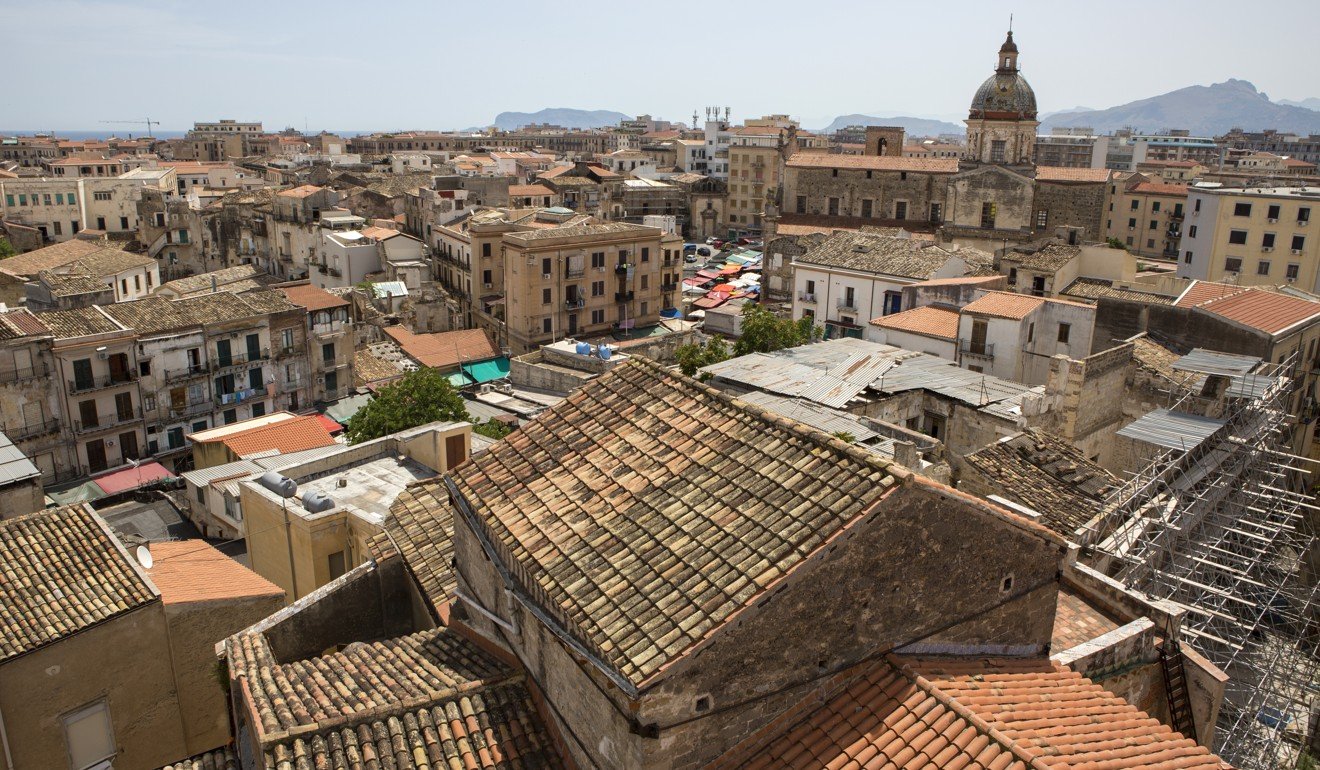
Sicily, the largest island in the Mediterranean, has a population of 5 million, of whom about 175,000 are migrants. Despite being home to a large number of communities from Africa, it also has a fair-sized Asian population – Bangladeshis, Sri Lankans, Indians and Chinese.
They work in wholesale fashion, garments and menial jobs. Many Bengalis, in particular, work on street corners operating carts selling a variety of cheap plastic goods such as phone covers. During the tourist season, they work long hours in the heat selling sarongs and sunglasses.
Addiopizzo, an anti-mafia organisation founded by university students in 2004, supported the shopkeepers in their legal battle against the mob.
Group member Edoardo Zaffuto says that in the past there had been the odd case of individuals reporting incidents of intimidation to the police. What was unusual about the shopkeepers’ case was their decision to approach police together as a group.
“It’s interesting that the protagonists of this act of rebellion were not people from Palermo, but people from Bangladesh,” Zaffuto says.
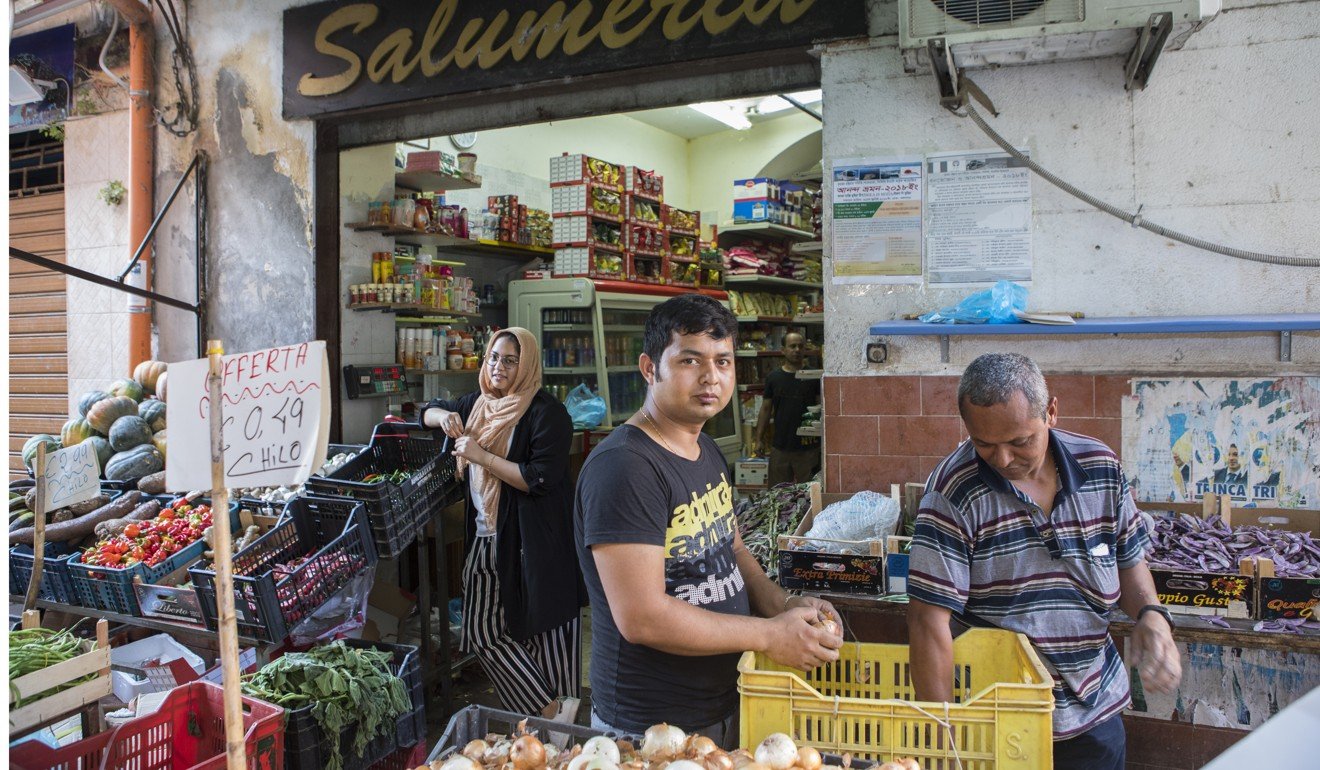
However, those who stand up to the mafia are subject to different levels of intimidation. Topu says this includes cases where Bengali shopkeeper have had the locks on their shop doors blocked with superglue – an early warning threat indicating that the criminals are watching. Those who do not respond can face attacks on their business premises, robbery or worse, he adds.
As the sun sets over the Ballaro market, Ahmed packs up for the day as the streets fill with rubbish, the smell of fish hangs in the air as restaurants open for the evening, and young Sicilians sip aperitifs.
In the evenings on the main thoroughfares of Palermo, Bengali hawkers set up their carts for the night. During the day, Mohamed Miah works as a cleaner for middle-class Italian families, at night he sells cheap electronic goods.
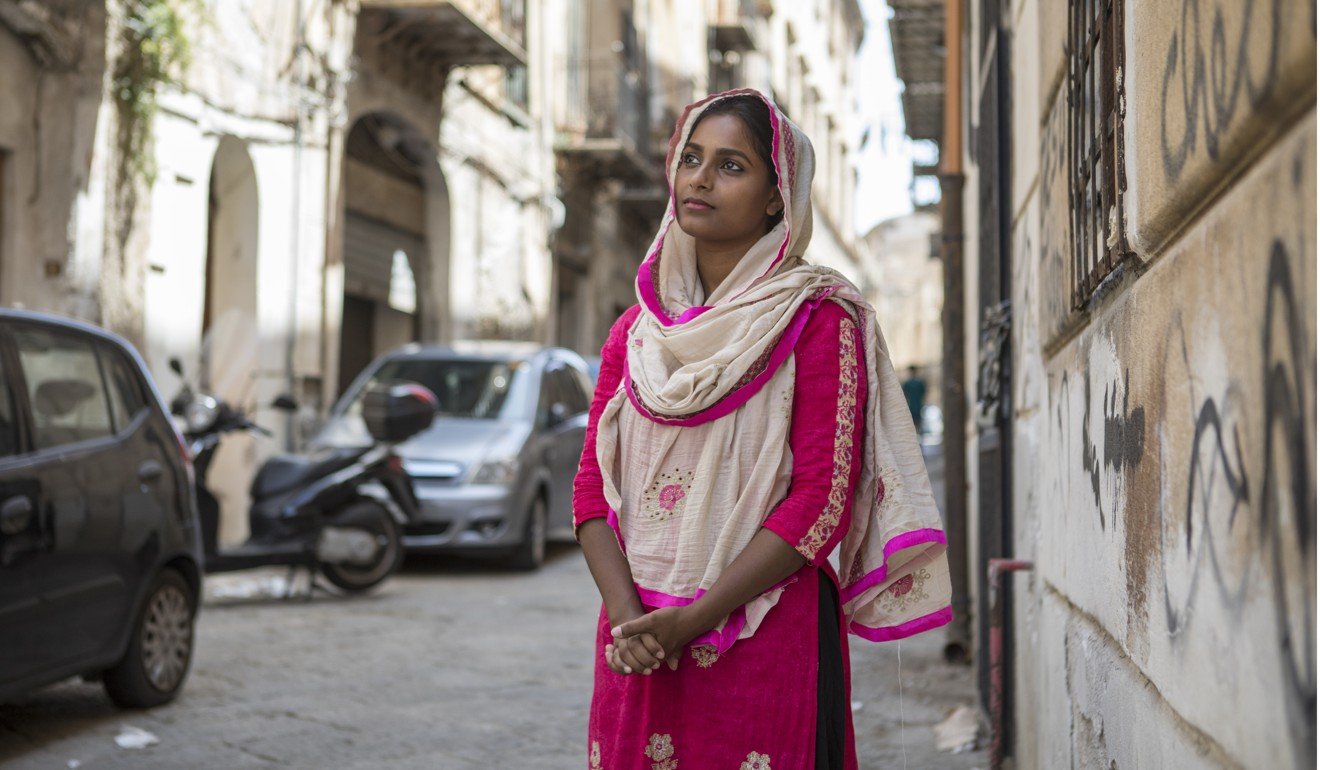
Miah has been the victim of mafia-like criminals in the city, whom he says sometimes try to steal from him.
Miah says he has reported such incidents to the police, but no action is ever taken. The police do not take him seriously, he adds. So like many of his fellow Bengalis, he has resorted to organising his own security: the shopkeepers call each other if they are involved in an incident and their peers step in to offer support.
For many like Miah, life in Sicily is a struggle. He says he does not make enough money to survive.
He earns €500 (US$569) to €600 a month, he says, and friends occasionally help out his family.
Despite the mafia threats and economic hardships they face, Bengalis are starting to find a place in mainstream Sicilian society, albeit slowly. Some have gained Italian citizenship – difficult for migrants – or other forms of legal recognition.
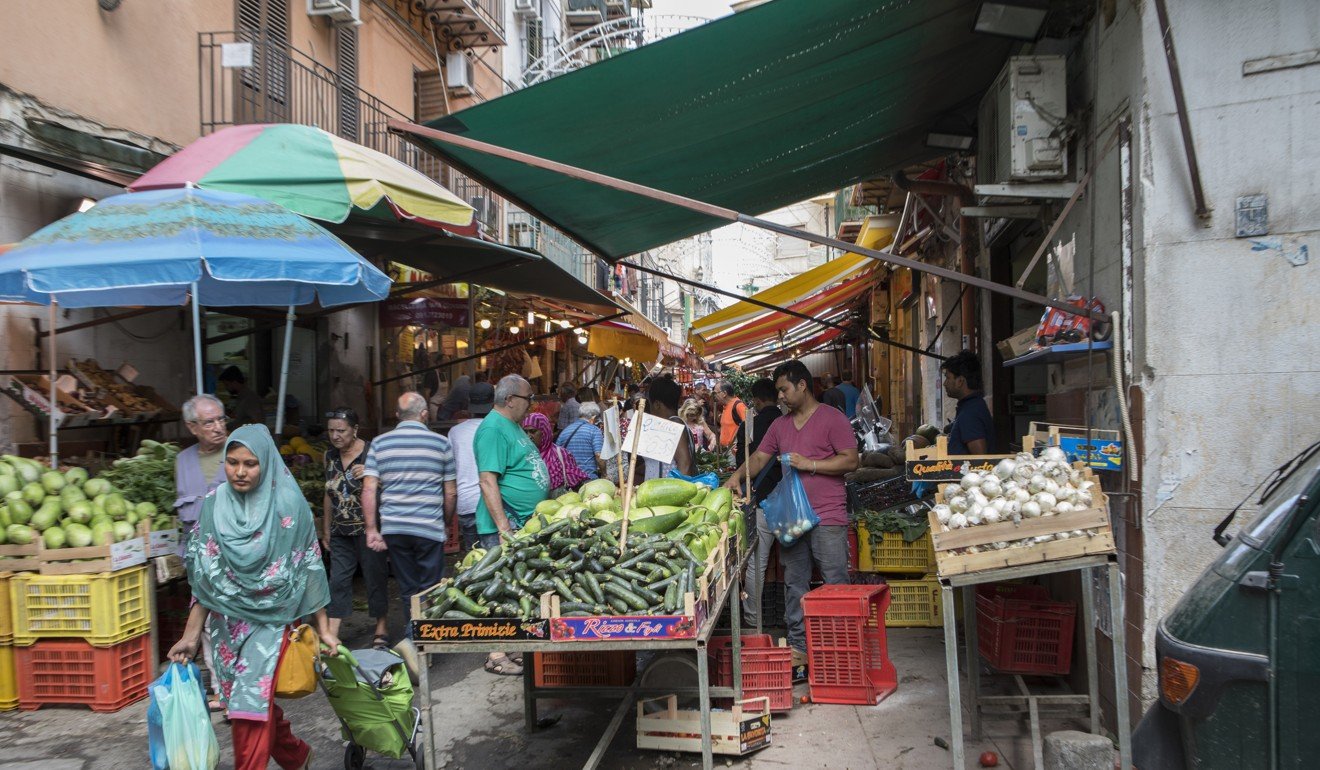
Sumi Dalia Aktar is the first elected Bengali politician in Sicily, where she is a member of former Italian prime minister Matteo Renzi’s Democratic Party.
“As foreigners, we have already demonstrated our courage by denouncing the mafia and the pizzo in Ballaro,” Aktar says.
By doing so the Bengalis have shown they are an integral part of the fabric of Palermo, she adds.
Although the outcome of the court case brought by the shopkeepers will not be known for some time, Aktar is proud that her community has taken a brave stance against the Cosa Nostra.
“The Bengali shopkeepers have contributed to our city of Palermo. As foreigners, we feel part of this city. This isn’t a transitory place for us, it’s our home,” she says.

